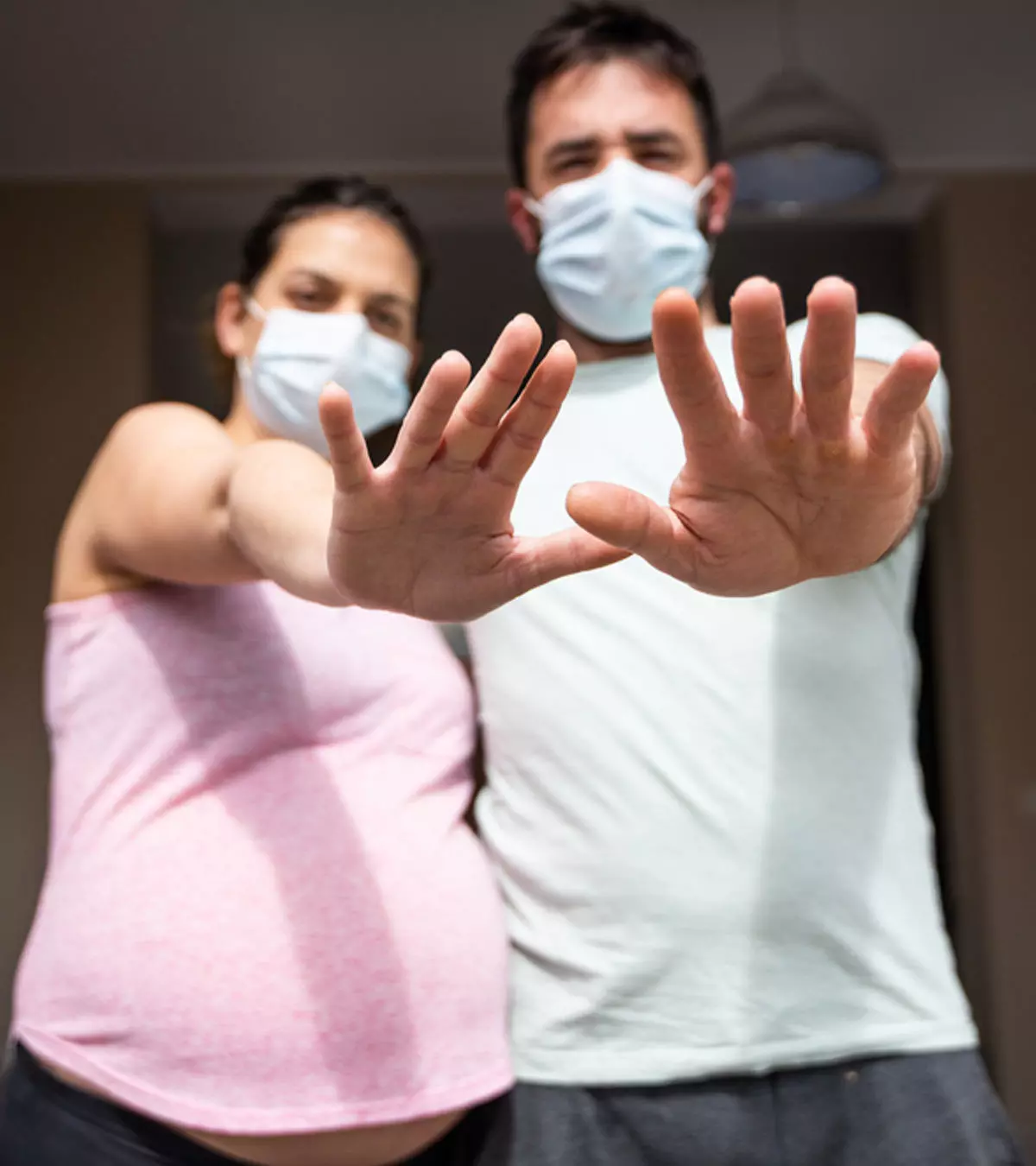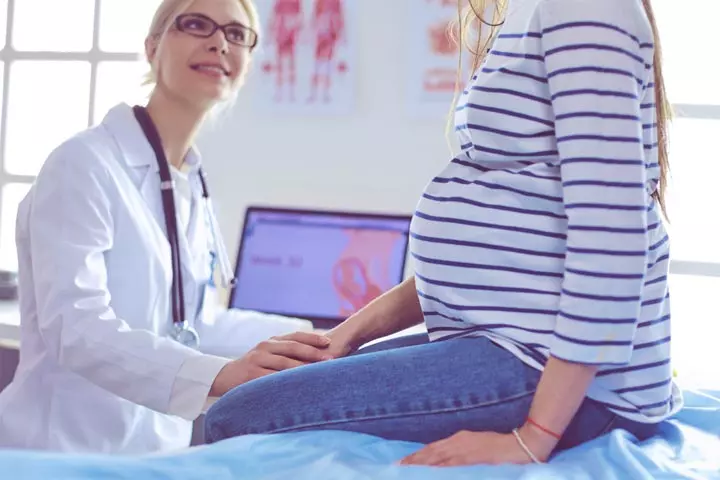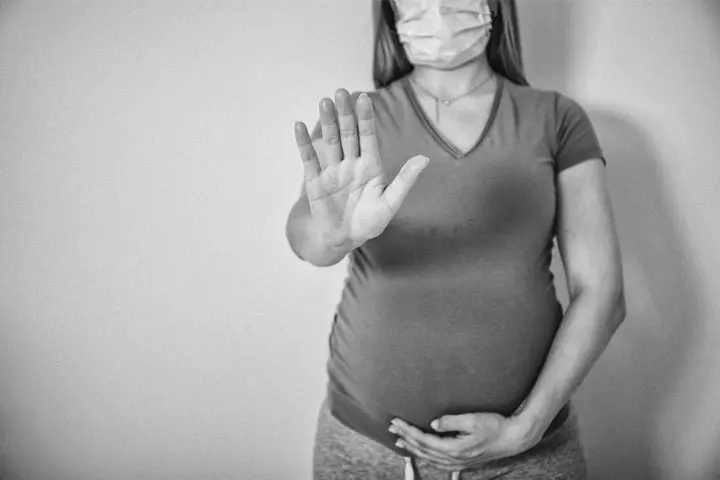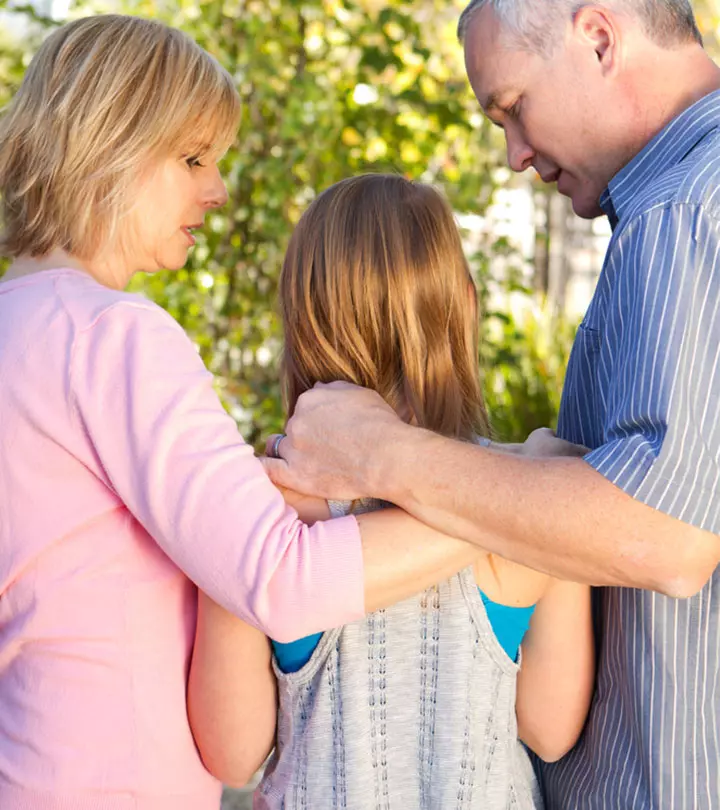

Image: Shutterstock
Once COVID-19 was declared as a pandemic, the world turned topsy-turvy. Civilized life became unpredictable. Goods and amenities that we used to take for granted became hard to access if not completely inaccessible. One can only imagine the plight of pregnant mothers amidst this chaos. All the meticulous planning for months does not apply anymore. As if pregnancy hormones weren’t enough, they have to wade through the storm of an ongoing pandemic and the unpredictability that accompanies it.
There must be thousands of worrisome and anxiety-ridden thoughts that these women must be battling. The most important among them is access to the healthcare a pregnant woman requires. Even if our healthcare workers are putting in the best of their effort, the pandemic threatens to strain health systems and cause disruptions in services (1). To put your mind at ease, we are here to help you answer some of the most asked questions.
1. Can the mother pass the COVID-19 virus to their baby?
Image: Shutterstock
Till now, researchers are unsure if the COVID-19 virus can be passed from mother to baby. Yet, it is certain that no trace of the virus has been found in breastmilk or amniotic fluid. It is recommended that mothers who tested positive with the COVID-19 virus continue to breastfeed the baby, as it is essential for the developing immunity of the newborn (2).
2. Are pregnant women at a higher risk of catching the virus?
Image: Shutterstock
Research on this matter is still under progress, and as of now, no study has suggested that pregnant women are at a higher risk. That being said, pregnant women tend to be negatively affected by respiratory infections during their term (3). Therefore, it is advised to strictly adhere to precautionary measures. Wash your hands frequently, and wear a mask if you are heading out, or likely to come in contact with other people.
3. Is the hospital a safe choice for delivery?
Image: Shutterstock
Your healthcare provider is crucial in making this decision with you. Communicate with your obstetrician or midwife to arrive at the option that is best suited for you. Don’t shy away from asking the questions you have, even if you feel it’s something irrelevant. In case you are planning to visit the hospital, make sure that you take appropriate precautions. Call the hospital and be informed about their visitor’s policy beforehand to avoid any unforeseen trouble.
4. Should visitors be allowed?
Image: Shutterstock
Expecting a newborn in your life can be exciting, and it is a reasonable desire for a new mom to share this news with her close friends and family. However, with the pandemic going on, it is smarter to stick to your immediate family and restrain yourself from having visitors. This is the time to make proper use of FaceTime or social media to share the news like you always wanted.
5. How to keep yourself safe
Image: Shutterstock
If you are pregnant amidst this crisis, you have to take special care for the well-being of you and your baby. Here’s a list of things that will keep you protected from the coronavirus:
- Utilize telemedicine services. Be in touch with your obstetrician or midwife regularly through messages or phone calls, rather than frequent in-person visits.
- Do not use public transport.
- Avoid all contact with people displaying symptoms.
- Restrain yourself from attending public gatherings, even if it constitutes of your closest family and friends.
- Follow the protective measures religiously. That includes social distancing, wearing a face mask, and gloves, in addition to washing your hands frequently.
Do you have a question that has not been answered in this article? If yes, let us know in the comments below.
Community Experiences
Join the conversation and become a part of our nurturing community! Share your stories, experiences, and insights to connect with fellow parents.

















